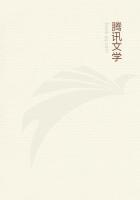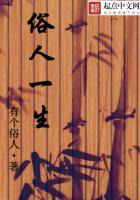In the first place, the Supreme Court of the United States has decided that any Congressional prohibition of slavery in the Territories is unconstitutional; that they have reached this proposition as a conclusion from their former proposition, that the Constitution of the United States expressly recognizes property in slaves, and from that other Constitutional provision, that no person shall be deprived of property without due process of law. Hence they reach the conclusion that as the Constitution of the United States expressly recognizes property in slaves, and prohibits any person from being deprived of property without due process of law, to pass an Act of Congress by which a man who owned a slave on one side of a line would be deprived of him if he took him on the other side, is depriving him of that property without due process of law. That I understand to be the decision of the Supreme Court. I understand also that Judge Douglas adheres most firmly to that decision; and the difficulty is, how is it possible for any power to exclude slavery from the Territory, unless in violation of that decision? That is the difficulty.
In the Senate of the United States, in 1850, Judge Trumbull, in a speech substantially, if not directly, put the same interrogatory to Judge Douglas, as to whether the people of a Territory had the lawful power to exclude slavery prior to the formation of a constitution. Judge Douglas then answered at considerable length, and his answer will be found in the Congressiona1 Globe, under date of June 9th, 1856. The Judge said that whether the people could exclude slavery prior to the formation of a constitution or not was a question to be decided by the Supreme Court. He put that proposition, as will be seen by the Congressional Globe, in a variety of forms, all running to the same thing in substance,--that it was a question for the Supreme Court. I maintain that when he says, after the Supreme Court have decided the question, that the people may yet exclude slavery by any means whatever, he does virtually say that it is not a question for the Supreme Court. He shifts his ground. I appeal to you whether he did not say it was a question for the Supreme Court? Has not the Supreme Court decided that question? when he now says the people may exclude slavery, does he not make it a question for the people? Does he not virtually shift his ground and say that it is not a question for the Court, but for the people? This is a very ****** proposition,--a very plain and naked one. It seems to me that there is no difficulty in deciding it. In a variety of ways he said that it was a question for the Supreme Court. He did not stop then to tell us that, whatever the Supreme Court decides, the people can by withholding necessary "police regulations" keep slavery out. He did not make any such answer I submit to you now whether the new state of the case has not induced the Judge to sheer away from his original ground. Would not this be the impression of every fair-minded man?
I hold that the proposition that slavery cannot enter a new country without police regulations is historically false. It is not true at all. I hold that the history of this country shows that the institution of slavery was originally planted upon this continent without these "police regulations," which the Judge now thinks necessary for the actual establishment of it. Not only so, but is there not another fact: how came this Dred Scott decision to be made? It was made upon the case of a negro being taken and actually held in slavery in Minnesota Territory, claiming his ******* because the Act of Congress prohibited his being so held there. Will the Judge pretend that Dred Scott was not held there without police regulations? There is at least one matter of record as to his having been held in slavery in the Territory, not only without police regulations, but in the teeth of Congressional legislation supposed to be valid at the time.
This shows that there is vigor enough in slavery to plant itself in a new country even against unfriendly legislation. It takes not only law, but the enforcement of law to keep it out. That is the history of this country upon the subject.
I wish to ask one other question. It being understood that the Constitution of the United States guarantees property in slaves in the Territories, if there is any infringement of the right of that property, would not the United States courts, organized for the government of the Territory, apply such remedy as might be necessary in that case? It is a maxim held by the courts that there is no wrong without its remedy; and the courts have a remedy for whatever is acknowledged and treated as a wrong.
Again: I will ask you, my friends, if you were elected members of the Legislature, what would be the first thing you would have to do before entering upon your duties? Swear to support the Constitution of the United States. Suppose you believe, as Judge Douglas does, that the Constitution of the United States guarantees to your neighbor the right to hold slaves in that Territory; that they are his property: how can you clear your oaths unless you give him such legislation as is necessary to enable him to enjoy that property? What do you understand by supporting the Constitution of a State, or of the United States?
Is it not to give such constitutional helps to the rights established by that Constitution as may be practically needed?
Can you, if you swear to support the Constitution, and believe that the Constitution establishes a right, clear your oath, without giving it support? Do you support the Constitution if, knowing or believing there is a right established under it which needs specific legislation, you withhold that legislation? Do you not violate and disregard your oath? I can conceive of nothing plainer in the world. There can be nothing in the words "support the Constitution," if you may run counter to it by refusing support to any right established under the Constitution.














